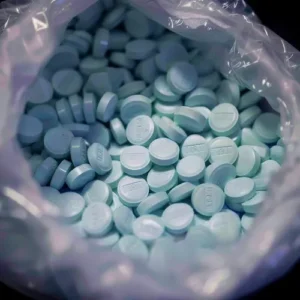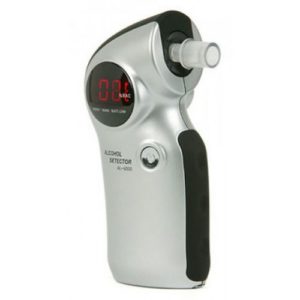In the United Kingdom, over 200 deaths have been linked to ecstasy use within the last 5 years, a relatively low number compared to deaths related to other drugs like cocaine and heroin or even over-the-counter drug related deaths from products like aspirin. According to authorities, the strength of MDMA and Ecstasy tablets is now stronger than ever, which raises concerns that the number of drug-related deaths can only get higher in future.
With a large amount of media attention on ecstasy-related deaths, findings have shown that no deaths have been caused by allergic reactions to the drug or poisoning; instead, ecstasy deaths belong in three categories:
Heatstroke
When a user takes ecstasy, a sudden increase in energy levels and hyperactivity are two of the main reactions. Typically taken in a club environment where hundreds (or thousands) of people are dancing, the body’s temperature naturally rises. On ecstasy, users typically dance for hours at a time without any breaks which, in the hot and humid environment, can force their temperature above 40 degrees Celsius causing a lot of problems. Typically people who reach this body temperature on ecstasy experience dilated pupils, low blood pressure, rapid heartbeat, and ultimately convulsions and seizures.
Death in this case is usually caused by respiratory collapse—ecstasy reacts with other chemicals in the user’s body that causes blood to coagulate in portions of the body that it shouldn’t. When blood starts to coagulate in the lungs, the user will be unable to breathe and the person will die.
Too Much Fluid
Most ecstasy users have heard enough anecdotal evidence of other users overheating that they take precautions to prevent that from happening. Typically users will wear light clothing, take breaks, and drink water. The problem is users don’t understand how much water they should be drinking and end up drinking too much. When too much water is consumed, the user will suffer from dilutional hyponatremia.
When someone suffers from dilutional hyponatremia while taking ecstasy, their kidneys will start to produce a chemical that tells their brain to stop excreting fluid, which means the body will not sweat. During this stage of water retention, the brain cells will start to absorb the water and the increased pressure on the brain can cause lung and heart failure. Not all users who suffer from dilutional hyponatremia die and may only experience dizziness, disorientation, or become comatose.
Heart Failure
When ecstasy is taken, the heart beats much faster than normal and blood pressure takes a steep rise. For a young, fit individual the elevated blood pressure and heart rate is usually something their body can sustain with no negative consequences. For some users—especially those who aren’t aware they have a cardiovascular condition, are older, or are overweight and unfit—this elevation in heart rate and blood pressure can cause heart failure.
Ecstasy Side Effects
While the primary causes of death from ecstasy are heatstroke, water intoxication, and heart failure, there are many other dangerous side effects users may experience. Even if these effects don’t directly cause death, they can seriously impact health and wellbeing.
For example, ecstasy raises body temperature and heart rate while also causing muscle tension and teeth grinding. This combination puts immense stress on the body and can lead to muscle cramps, nausea, blurred vision, and faintness. You’ve probably seen videos of people at raves or festivals writhing uncomfortably on the ground – their bodies simply can’t handle the strain.
Another worrying side effect is psychosis. Ecstasy alters the brain’s serotonin levels, which regulate mood, sleep, appetite, and other functions. This serotonin disruption can cause paranoia, anxiety, and in some cases psychosis where the user loses touch with reality. Psychosis symptoms like hallucinations and delusions are terrifying experiences no one should have to endure.
One severely underrated danger of ecstasy is its impact on brain function and memory. Studies show heavy long-term use causes significantly impaired memory performance and inability to complete complex tasks. This “brain drain” could permanently damage your cognitive abilities for work, relationships, and normal life activities we so often take for granted.
Finally, we can’t ignore the psychological dependence ecstasy can create. While not physically addictive like heroin, the intensely euphoric high makes ecstasy psychologically habit-forming…
Drug Testing for Ecstasy
If you are concerned that a teenage or relative is using Ecstasy, there are drug testing kits available that will detect MDMA (Ecstasy) These single drug Ecstasy Tests Kits are simple-to-use urine checks that will give you results in minutes There are also multi-drug testing kits available that have ecstasy as one of the drugs that they detect.
Closing Thoughts
At the end of the day, the risks of ecstasy simply aren’t worth the temporary high. Even if you don’t die from overheating or water toxicity, the potential for psychosis, brain damage, dependence, and other side effects can ruin your life just the same.
You may think “it won’t happen to me, I’ll be careful.” But that’s exactly what every person who did suffer heatstroke, heart failure, or brain damage thought too. Ecstasy is unpredictable and pushes your body to its limits. Why gamble your health and future on a few hours of partying? There are much safer ways to have fun and enjoy life.
If you or someone you know is struggling with ecstasy addiction, don’t be afraid to ask for help. Rehab, counseling, and support groups provide judgment-free resources to break the cycle. Making that first step to get clean could save your life – or someone else’s. You deserve to live fully without ecstasy’s toxic effects dragging you down.
Photo: “MDMA” by Anthony Cunningham for Zoom Testing
Zoom Testing is a leading UK drug testing company and a supplier of Drug Test Kits.





